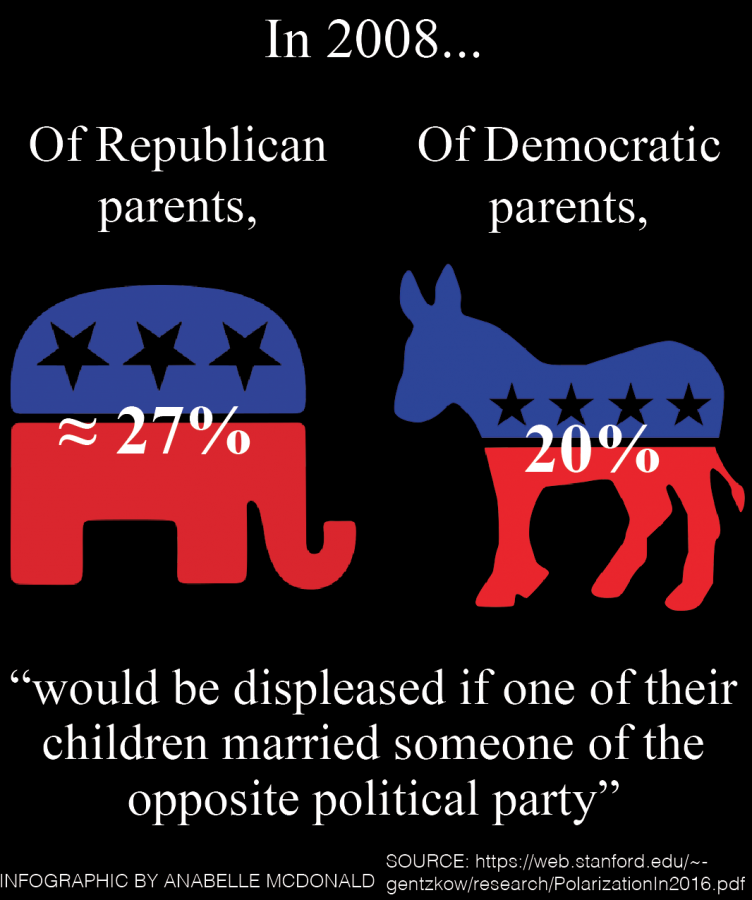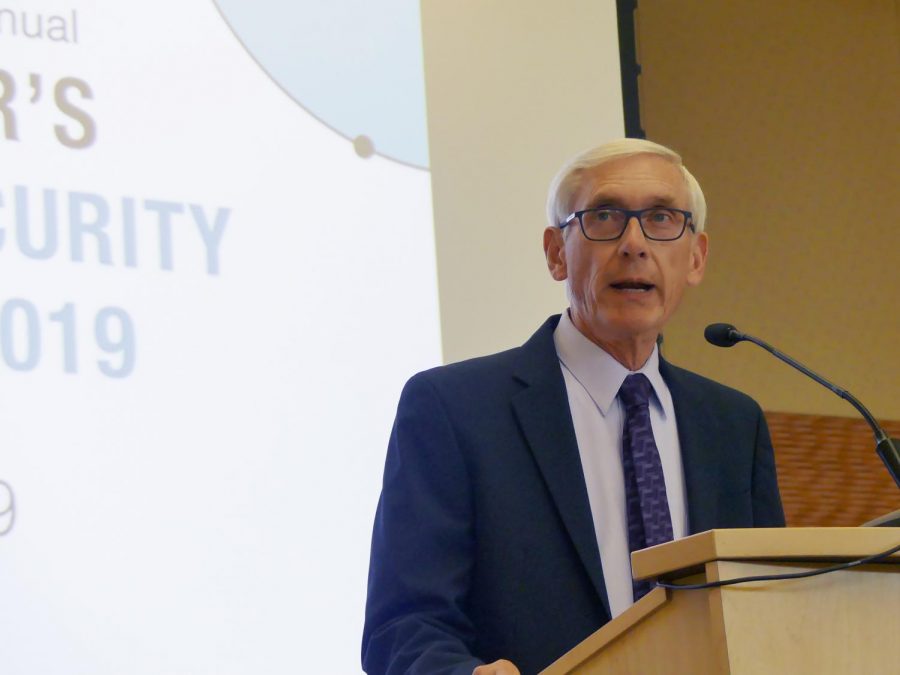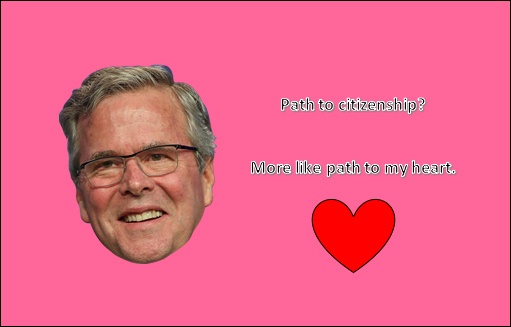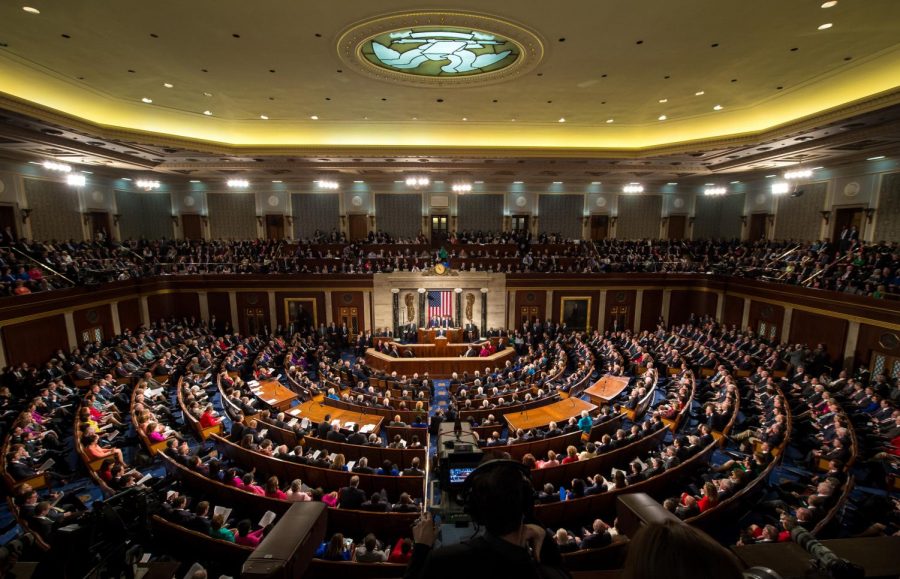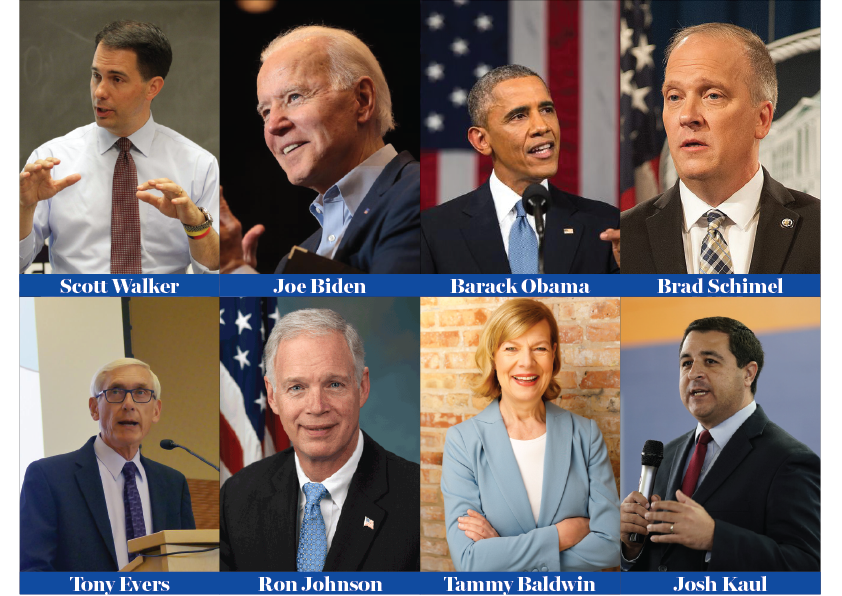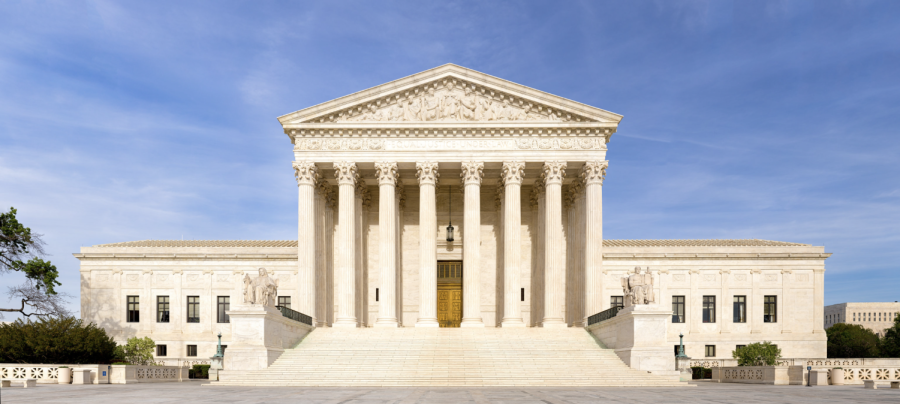Some of the greatest advice I ever received is to never talk about politics, or my political party affiliations, with anybody.
It took me years to realize how sage this advice was. But, today, I’m choosing not to follow it.
That’s because I believe political discourse and activism is the most impactful form of action that someone can take in the United States. In this country, one person can truly make an impact, and that precedent hasn’t changed for as long as it has existed.
Despite this, I still find myself concerned about the impact that my published opinions will have later in my life. I’m not afraid of criticism, but instead of the way it will affect people’s outlook on me.
It’s a great privilege to write columns for a student-run publication, an environment where political activism for tolerance is so prevalent. But regardless of the forum, this is one of the worst time periods in American history to discuss politics.
In modern America, I’ve found that politics have become more than just a discussion. Our alignments with political parties have become a lifestyle and a label. They are a central cause of the horrid amount of political one-sidedness that is currently in the United States. Sometimes, it gets to the point where it can affect relationships between citizens.
This mainly refers to people who identify as Republican or Democrat. Radical parties such as Nazis and the Ku Klux Klan are not included here because of the hate speech and intolerant rhetoric these parties promote. When you promote these discriminatory values, you are giving up your right to be a part of political discourse.
It was just a few months ago when I observed one of these cases during a casual discussion between two of my friends. One who happened to be a Democrat, and the other a Republican. The Republican friend had not revealed his party alignment to anyone.
I watched as my Republican friend revealed he was a conservative, and my Democrat friend gave a look of sheer disappointment. I’m not talking about a simple eye roll, but pure disappointment and disapproval.
It’s disheartening to see the amount of intolerance we have for one another just because we have differing opinions, and occurrences like this happen more often than not in modern America. Both sides make it personal — this case was no different.
A Stanford study found that 20 percent of Democrats and approximately 27 percent of Republicans would disapprove if their child married someone from the opposite political party. These numbers were released in 2008, and considering the political climate today, it’s safe to assume that these percentages have gone up.
What sets this country apart from so many others is the fact that it is a melting pot of culture. There’s no dominant ideology, no symbolic head of state, and there’s not one single person or grouping that should tell us how to think or influence how we feel about others.
But this doesn’t prevent individuals with more power from trying to psychologically impact U.S. citizens. This is where political parties attempt to take advantage to the point where politics becomes more of a reality show than an actual platform where changes are made.
This idea was predicted hundreds of years ago, and holds more prevalence now than ever.
James Madison’s “Federalist No. 10” essay details the dangers of political factions. While he was not completely correct in his predictions and theories, there were a couple of arguments that are accurate:
“The public good is disregarded in the conflicts of rival parties, and that measures are too often decided, not according to the rules of justice and the rights of the minor party, but by the superior force of an interested and overbearing majority.”
The important perspective here is, “The public good is disregarded in the conflicts of rival parties.” Parties get so involved in trying to weaken their counterpart that it dissuades them from doing their jobs.
When leaders are throwing insults around during a presidential debate like they’re trying to hype up a boxing match, it paints a picture of how party leaders are attempting to create a rivalry. This is all in an attempt not only to weaken the power of the opposing party, but also an attempt to manipulate people into taking a side and holding a hostile predisposition toward the other.
It could be true that blind loyalty is the ultimate goal of political parties. Party leaders want nothing more than to generate a hardcore following that will not only support just about every decision they make, but also develop a general dislike for the other side. It gets them power, it weakens the other side and it makes people who support the opposition look bad.
The predicament is that political parties are crucial to the survival of American politics. They are supposed to provide a platform for people with similar interests to have power in the United States government, and our government has, for a long time, had the two party system.
But even so, their manipulative practices are unethical, but will never stop. The only course of action for the American people is to resist it and be moderate. But it’s a shame that in this society, something like that will never happen.
Because of all this, there will never be a point in time where I will not feel cautious with sharing my personal political beliefs. But something that I will always do is try to keep my views somewhere in the middle, because the American legislation is attempting to promote a culture of tolerance.

